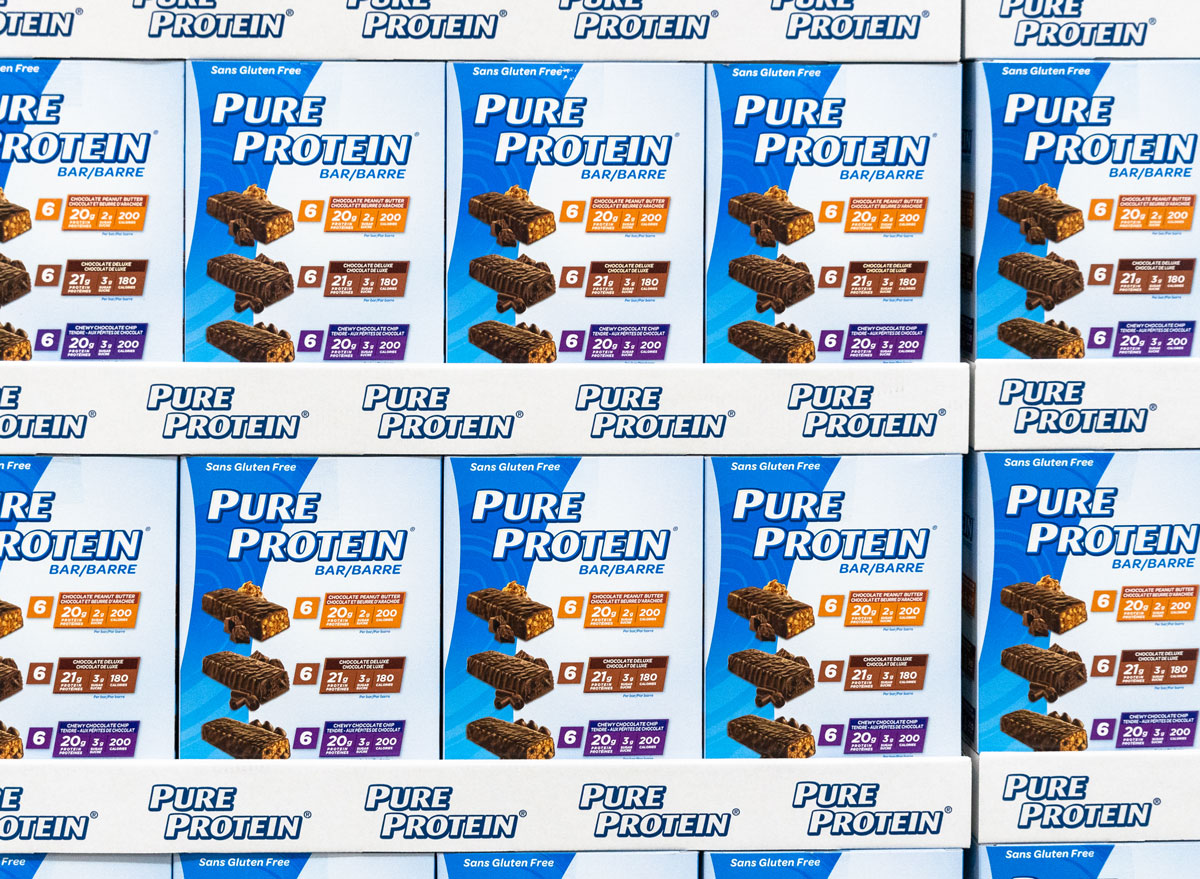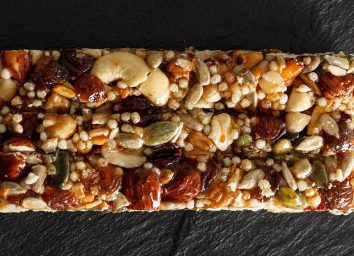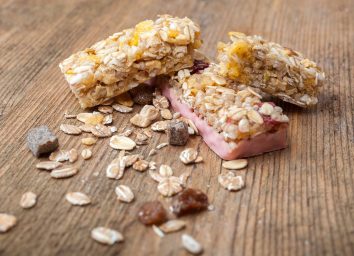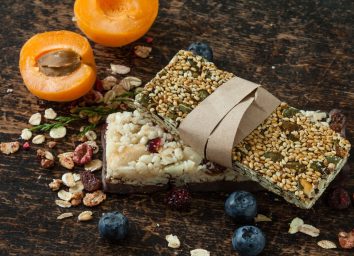Are Pure Protein Bars Healthy? What A Nutritionist Wants You To Know

Additional reporting by Kelsey Hampton, MS, RDN, LD, CSSD
Protein bars are a popular food item for meal replacements and post-workout snacks. While choosing food in its whole or less processed state is typically more ideal, the convenience a protein bar offers is hard to beat. Some of the most popular protein bars on the market are Pure Protein bars.
Marketed as a high protein, low carb option, it's no wonder why this is the go-to bar for many people looking for a quick and easy protein boost. But is it truly a good option? Read on to learn more about what ingredients are in Pure Protein bars, their nutrition information, and whether they're really as healthy as they seem.
What's in a Pure Protein bar?
Pure Protein bars get their protein from several different sources:
- dairy protein, which includes milk protein isolate, whey protein isolate, whey protein concentrate, and casein (the exact combination depends on the bar)
- soy protein isolate
- collagen, listed as hydrolyzed collagen or hydrolyzed gelatin
While there is a small amount of sugar used in these bars (2 to 4 grams per bar), the majority of this comes from the carbs naturally occurring in the various dairy products and the chocolate coating used in many of the bars. Other carbs are from sugar alcohols (more on this ingredient later).
The bars generally contain only a few grams of fat that comes from the nut products used in some bars (like almond butter), and various oils, including palm kernel, canola, and peanut.
In addition to the calorie-containing ingredients, these bars are also fortified with vitamins and minerals, like calcium, vitamin A, potassium, and zinc, to name a few.
What is the Pure Protein bar's nutrition?
On average, Pure Protein Bars have the following nutrition information:
- Calories: 200, on average
- Protein: 20 grams
- Sugar: 2 to 4 grams
- Fiber: 1 to 7 grams
As a meal replacement or post-exercise recovery snack, the 20 grams of protein is adequate for many people, although individuals with higher calorie needs, high training volumes and/or looking to gain weight may require more protein.
The modest amount of total carbohydrate and minimal sugar is appealing. It is important to differentiate between naturally occurring sugar, like that which occurs in dairy and fruit, for example, and refined sugar that is highly processed with little nutritional value. The minimal amount of refined sugar in these bars is definitely a selling point.
The nutrient composition of this bar makes it a good option for a snack and even a meal, if combined with additional food, like fruit. However, the low fiber content across most of the bars is less than ideal (most adults should be getting at least 25 grams per day), and while the composition of carb, fat, and protein is reasonable, these bars do contain common allergens, like dairy and soy, so they would not be a good option for those with sensitivities or allergies to these ingredients.
Are Pure Protein bars healthy?
"Healthy" is different for everyone. What works for a highly active individual may not be ideal for someone more sedentary. With that in mind, Pure Protein bars do have some attributes we traditionally think of as being healthy:
- good protein
- low sugar
- broad variety of vitamins and minerals
While these are positive characteristics in the bars, there are some components to be mindful of.
Sugar alcohol, like malitol, and the artificial sweetener Sucralose are used in all of these bars. This is how manufacturers are able to make a sweet-tasting bar without the sugar and associated calories.
While this may seem positive, sugar alcohols, in particular, are known to cause digestive upset and symptoms like bloating and gas (the bars even have a warning stating this). Not everyone may experience this when consuming products containing sugar alcohols, but it is worth noting for the population who may notice this digestive discomfort.
Overall, this is a good bar option for those who are not sensitive to dairy, soy and/or sugar alcohols. I always encourage whole food whenever possible; however, you can certainly use protein bars as part of a healthy, well-rounded diet.







